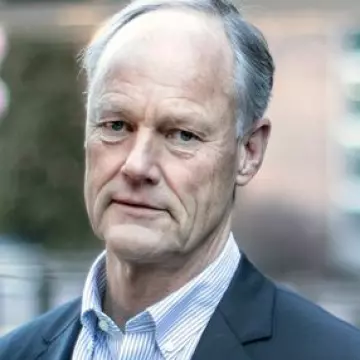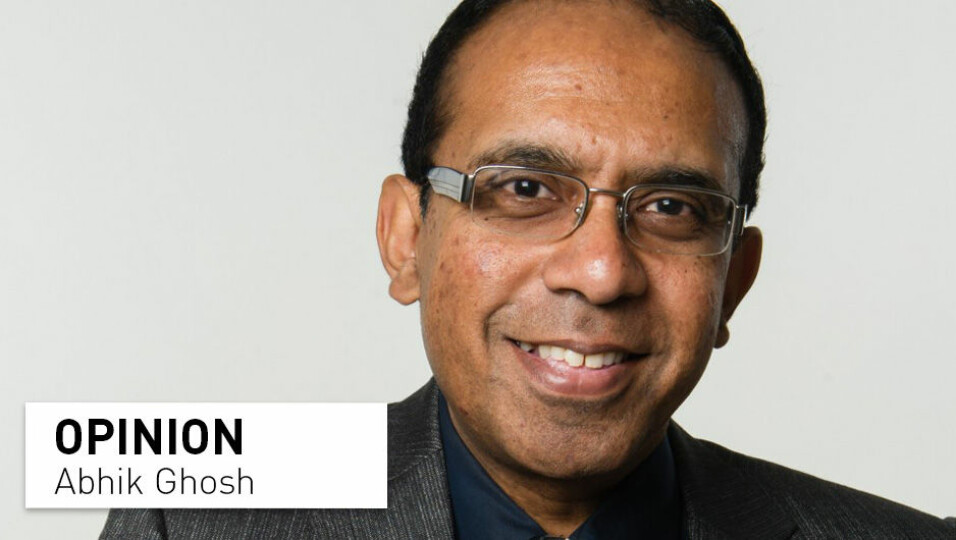Share your science:

How to commit financial crime
SHARE YOUR SCIENCE: A convicted felon defends fraud.
After Thule Drilling went bankrupt in 2010, investigators discovered that the company’s chairman Hans Eirik Olav had embezzled $ 6 million.
In 2015, he was sentenced to four years in prison, and to repay the amount in full. His autobiography (published the same year) provides valuable insights into how he understands his own actions and their consequences.
There are many theories about why economic elites commit financial crime. In my research, I study convenience, which is to say that powerful people have access to resources that make it relatively easy to commit and conceal fraud and other forms of white-collar crime.
Motive
Thule Drilling was in a difficult financial position in 2007, and the construction of a drilling rig at a Saudi Arabian shipyard had stopped. Part of the problem was lacking payment and conflicts between Thule Drilling and the shipyard.
By virtue of his status and position in the company, Olav asked employees to transfer large sums of money to other companies. He then claimed these companies would transfer the money to the shipyard, without disclosing that he was the owner of the companies.
According to Olav, he did not do this to enrich himself; rather, his goal was simply to save his company from bankruptcy.
The courts did not believe him and concluded that he exploited the opportunity to get hold of money from the company before it went bankrupt. He probably did so to maintain his position, status and wealth. While Thule Drilling was in the midst of the crisis, Olav bought a speedboat for $ 100 000 and an artwork by Edward Munch for $ 50 000.
Opportunity
As chairman of the board, Olav had the power to ask employees to transfer money without offering adequate documentation. Employees and other board members trusted Olav and believed that his goal was to save the company from bankruptcy.
White-collar offenders often have legitimate access to strategic resources that can be used to commit and cover up crime.
Olav created a situation where nobody had a full overview of his financial transactions by spontaneously asking several people to carry these out. Thule Drilling’s external auditors withdrew due to inadequate accounting.
Because of his position and poor control routines at Thule Drilling, Olav was able to defraud the company and potentially get away with it. If the company had not gone bankrupt, it is unlikely that his wrongdoing would have been detected.
When his crime was discovered, he had access to Norway’s top defense attorney because of his resources.
Willingness
Olav identified strongly with Thule Drilling, and regarded company money as his personal money. He also showed signs of narcissism, including grandiosity, a need for admiration and a lack of empathy.
In his autobiography, he tries to neutralize his white-collar crime in three ways.
Firstly, he claims that it was necessary to act as he did. In a stressed situation, he simply did what he could to save his company from bankruptcy. At the same time, he claims he was entitled to transfer money to himself as payment for his work for the company.
Secondly, he asserts that his actions should not be illegal. Laws change over time, for example, not too long ago bribes were accounted as marketing expenses.
Many white-collar criminals claim that economic laws demonstrate lacking understanding of finance and business, in much the same way that many drivers consider speed limits to be too low. As mentioned, Olav claims that he acted as he did to save the company from bankruptcy, and that his actions should therefore have been legal.
Thirdly, he describes himself as a victim of the prosecutor and the Norwegian state. He believes he was innocently convicted, and that he and his family were unfairly treated. He tries to bypass his crime by accusing his accusers of not providing him sufficient information about the evidence against him, and of failing to use evidence that could have proven him innocent.
Like a slippery slope, minor infractions can over time lead to serious crime, in some cases without the person committing them realizing it. In the case of Olav, it started with convenient solutions to save Thule Drilling from bankruptcy and ended in an attempt at personal enrichment. An organization that ignores deviant infractions is therefore in danger of serious consequences over time.
———










